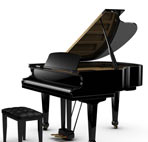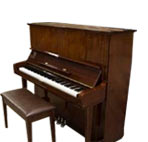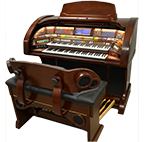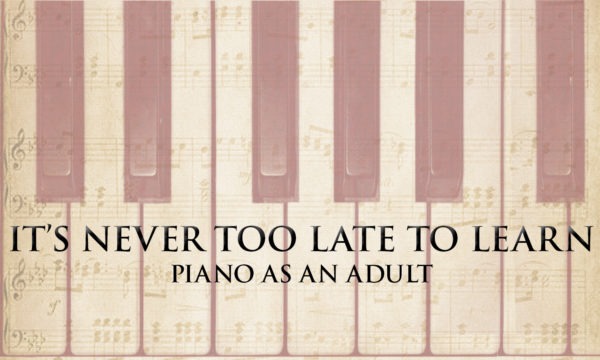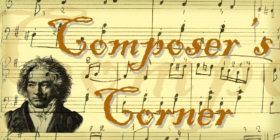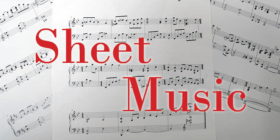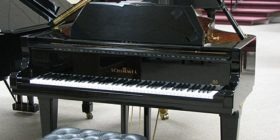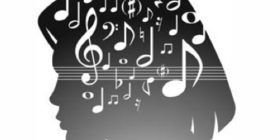If you think that piano lessons are only for kids, think again.
There are many misconceptions and myths about learning to play the piano as an adult. The biggest myth about learning piano as an adult is that you’re too old. And that’s simply not true.
Busted: The Biggest Myth About Adults and Piano Lessons
I’ve taught adult piano students ranging in age from their 30s to their 60s. They have gone on to accomplish all sorts of musical goals, just like my younger students. Some have successfully sat AMEB exams for the first time in their lives. Others have learnt to play a particular piece for a special event, such as their wedding. I’ve also had adult students who were afraid of public performances who now enjoy playing at our annual recitals. In every case, they’ve proven that you’re never too old to learn to play the piano.
Pros of Learning Piano as an Adult
As an adult, there are actually several advantages you will enjoy when learning to play the piano.
Concentration
To begin with, it will come as no surprise when I point out that adult students have much higher concentration levels than kids. This means that as an adult piano student, you can learn musical concepts and musical theory much more quickly than children, which means you’ll also learn to play better, faster.
Motivation
Plenty of children don’t really want to learn to play the piano, and so motivating them can be a battle. Because most adults who take up piano lessons are there because they want to be, motivation isn’t really an issue. You’re there because you want to be, and because you want to improve, you will practise.
Emotional Development
Unlike children, adults are emotionally developed, and so it’s much easier for them to grasp musical expression. This allows you to connect with the music more easily, and to play more expressively.
Time Management
Adults are also much better at managing their free time than children. They also realise that improvement requires practise. This means they are better at allocating time to practise each week – and are more likely to do it.
Cons of Learning the Piano as an Adult
Of course, it’s not all easy sailing to learn the piano as an adult. In addition to enjoying all the benefits described above, you may also face some of the following challenges. Thankfully, if you are aware of them, you will be better prepared to prevent them from becoming a problem for you.
Time Management
Yes, this one can also be a con. Although, as an adult, you’re probably very good at time management, you’re also almost certainly very time poor. Family, work, and social commitments, as well as other activities such as going to the gym, dancing, etc., can make it difficult to find the time to practise the piano. This is a challenge that can be overcome, but it’s important to be aware of it.
Well-Developed Ear
Now you’re probably thinking to yourself, “how is this not a pro?” The reason for this is that adult students know what sounds good and what sounds bad (kids are much less aware of this). This means that adults students will often compare their own playing to the concert pianists they have heard, and then be disappointed when they don’t measure up. These musicians have years of training under their belts, and so it’s important not to be critical of your own playing in comparison. If you practise and have fun, you will improve.
Over-Developed Hand Muscles
Children’s hand and finger muscles are malleable, but adults have difficulty playing the piano without tension. I’m yet to teach an adult whose hands are relaxed and tension-free like a child’s. And I know how difficult it can be, because as an adult learning to play the violin, I also struggle to play with a relaxed technique in order to ensure the correct bow hold, etc. But that doesn’t mean you should give up!
Do you know someone who would love to learn the piano, but has been holding back? Why not share this blog post with them so they can discover that it’s never too late to learn.


